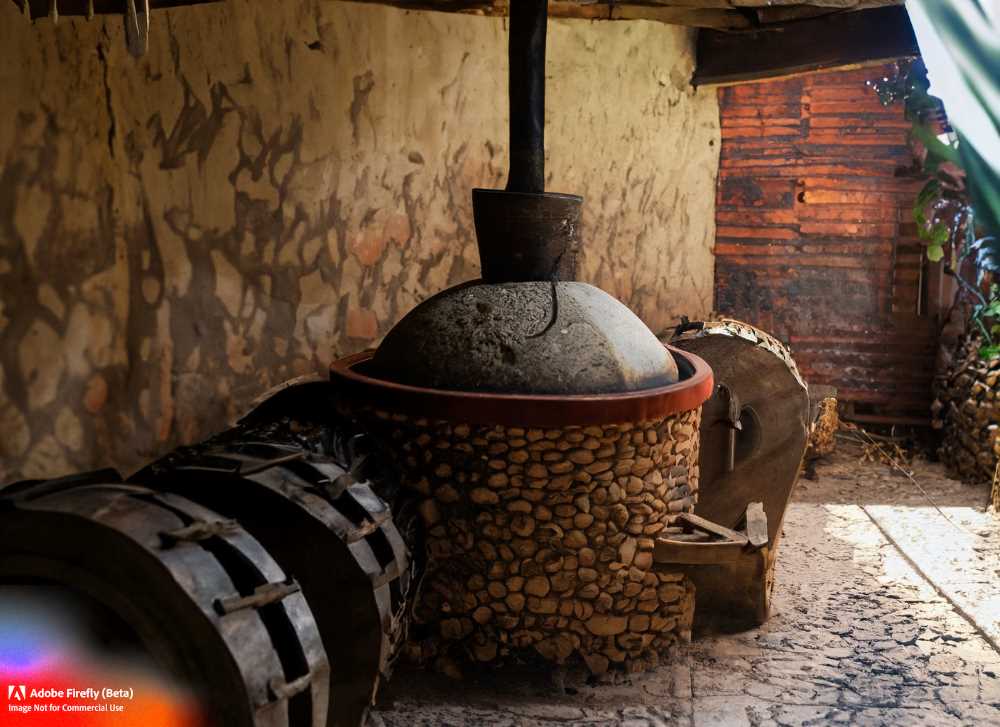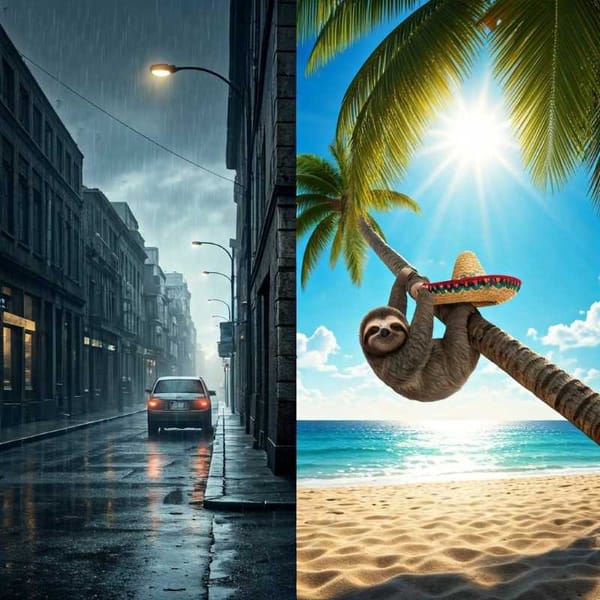The Truth Behind Mezcal's Marketing Gimmick
Uncover the truth behind mezcal's marketing gimmick. Learn about the smoky Mexican spirit's production, cultural significance, and the importance of sustainability and ethical practices.

Mezcal, a smoky and complex Mexican spirit made from agave plants, has exploded in popularity in recent years. It is often marketed as a traditional and authentic beverage with a rich cultural history, and consumers are willing to pay a premium for it. However, there is a dark side to mezcal's marketing gimmick, and it is essential to understand the truth behind it.
What is Mezcal?
Before delving into mezcal's marketing gimmick, it is important to understand what mezcal is. Mezcal is a type of alcohol that is produced from agave plants, primarily in the Mexican state of Oaxaca. While tequila is also made from agave plants, it can only be made from blue agave and must be produced in specific regions of Mexico. Mezcal, on the other hand, can be made from any type of agave and can be produced in various regions of Mexico.
Mezcal is known for its smoky flavor, which comes from the process of cooking the agave in underground pits before fermenting and distilling it. It is often enjoyed neat or in cocktails, and its popularity has surged in recent years.
The Rise of Mezcal's Marketing Gimmick
As mezcal's popularity has increased, so has its price. Some bottles of mezcal can sell for hundreds of dollars, and the high prices are often attributed to the drink's artisanal and traditional production methods. Mezcal is marketed as a drink that is deeply tied to Mexican culture and heritage, and consumers are willing to pay a premium for it.
However, the reality is that much of the mezcal industry is not as authentic as it is marketed to be. In recent years, there has been a surge in industrial production methods, which can lead to a loss of flavor and quality. Additionally, many mezcal producers are not transparent about their production methods or the source of their agave plants, which can lead to unethical practices such as deforestation and exploitation of workers.
The Truth Behind Mezcal's Marketing Gimmick
While mezcal can certainly be a high-quality and artisanal beverage, it is essential to understand the truth behind its marketing gimmick. Here are some key points to keep in mind:
Not all mezcal is created equal
Just because a bottle of mezcal is expensive or marketed as artisanal does not mean it is of high quality. It is important to do your research and find producers who are transparent about their production methods and the source of their agave plants. Look for mezcal that is made using traditional methods and is produced sustainably.
Mezcal production can have negative environmental and social impacts
The surge in demand for mezcal has led to an increase in agave plantations, which can contribute to deforestation and soil erosion. Additionally, many producers are not transparent about their labor practices and may exploit workers. Look for mezcal producers who prioritize sustainability and ethical practices.
Mezcal can be a part of Mexican culture without being tied to stereotypes
Mezcal is often marketed as a drink that is deeply tied to Mexican culture and heritage, and while it certainly has a rich history, it is important to avoid perpetuating stereotypes about Mexican culture. Mezcal can be enjoyed by people from all backgrounds, and it is important to appreciate its flavor and cultural significance without appropriating or exoticizing it.

Conclusion
Mezcal's marketing gimmick can be misleading, but with a little research and awareness, consumers can find high-quality and sustainably produced mezcal. By supporting producers who are transparent about their production methods and prioritize sustainability and ethical practices, we can ensure that mezcal continues to be a delicious and culturally significant beverage without contributing to negative environmental or social impacts. Additionally, it is important to appreciate mezcal for what it is, without perpetuating stereotypes or exoticizing Mexican culture.
As consumers, we have the power to support ethical and sustainable practices in the mezcal industry. We can choose to purchase mezcal from producers who prioritize transparency, sustainability, and ethical practices. We can also educate ourselves and others about the truth behind mezcal's marketing gimmick, and work to avoid perpetuating harmful stereotypes about Mexican culture.
In conclusion, mezcal is a complex and delicious spirit that has become popular in recent years. However, it is important to understand the truth behind its marketing gimmick and to support producers who prioritize sustainability and ethical practices. By doing so, we can ensure that mezcal continues to be a cultural and culinary treasure for generations to come.




